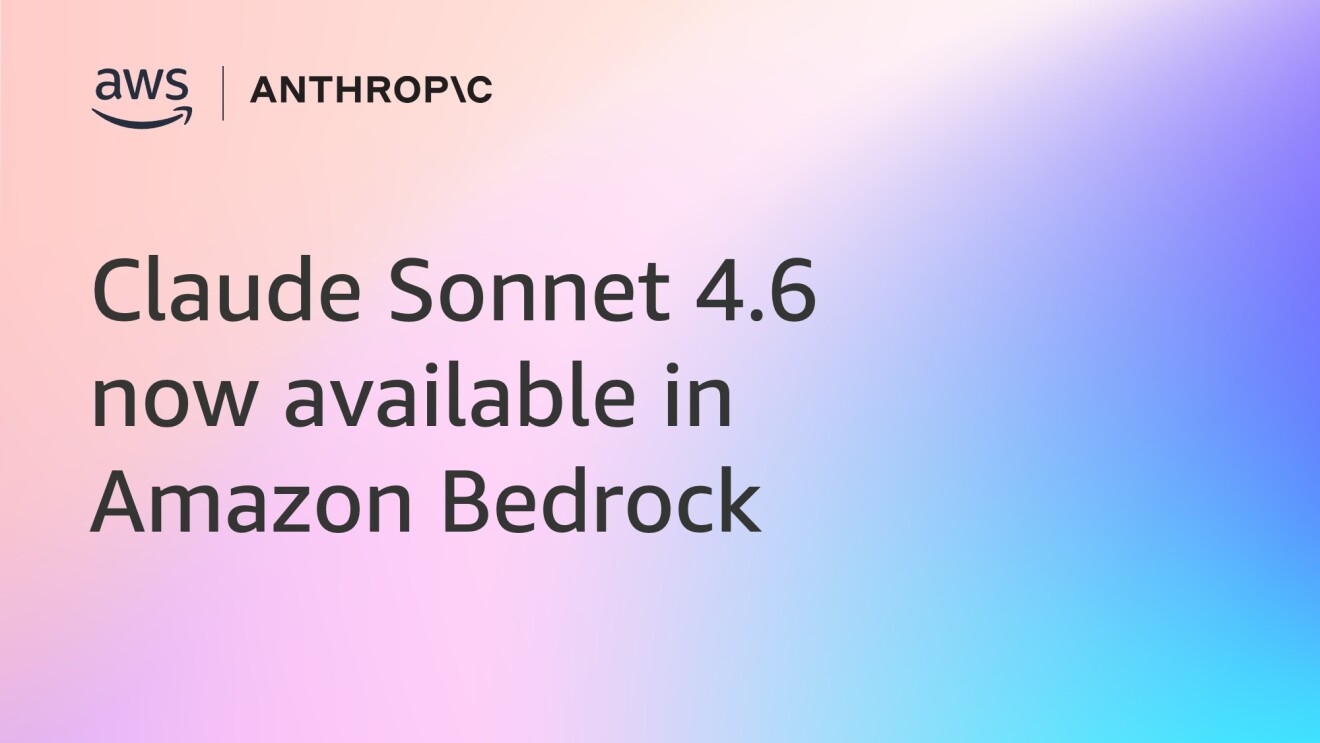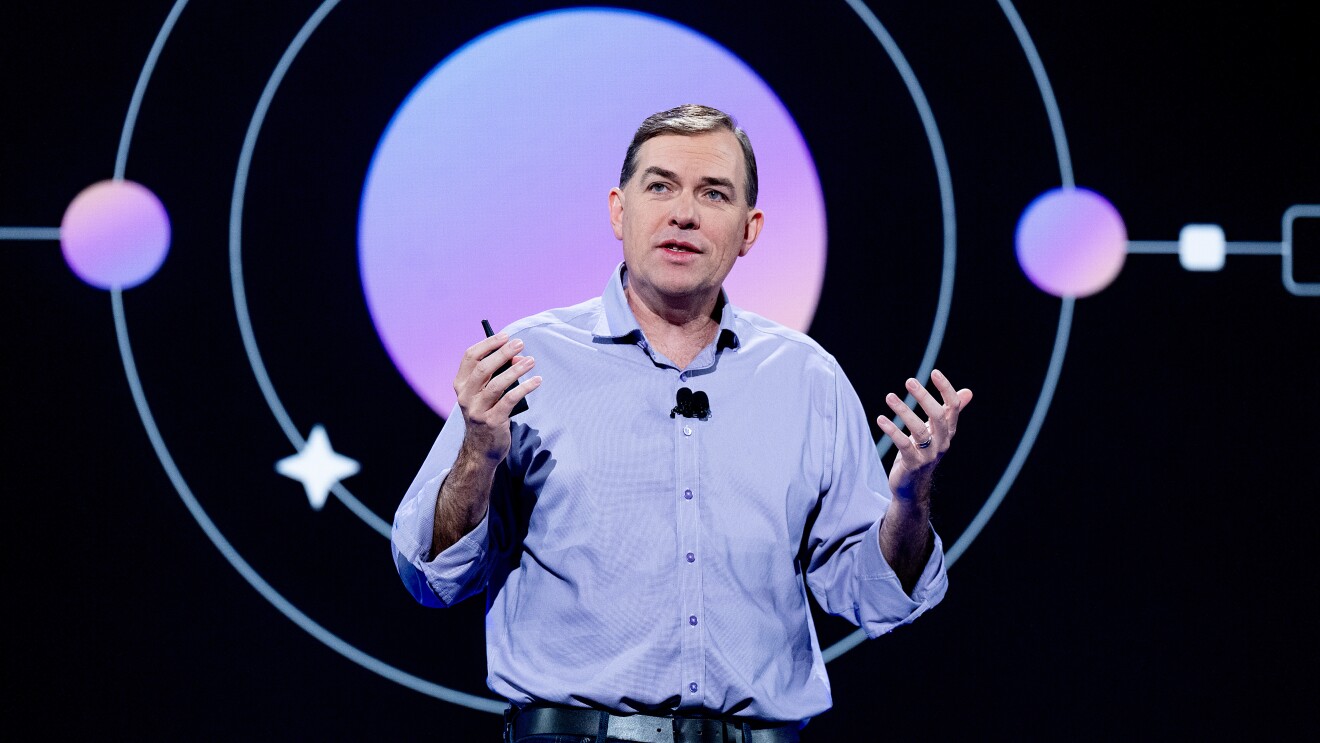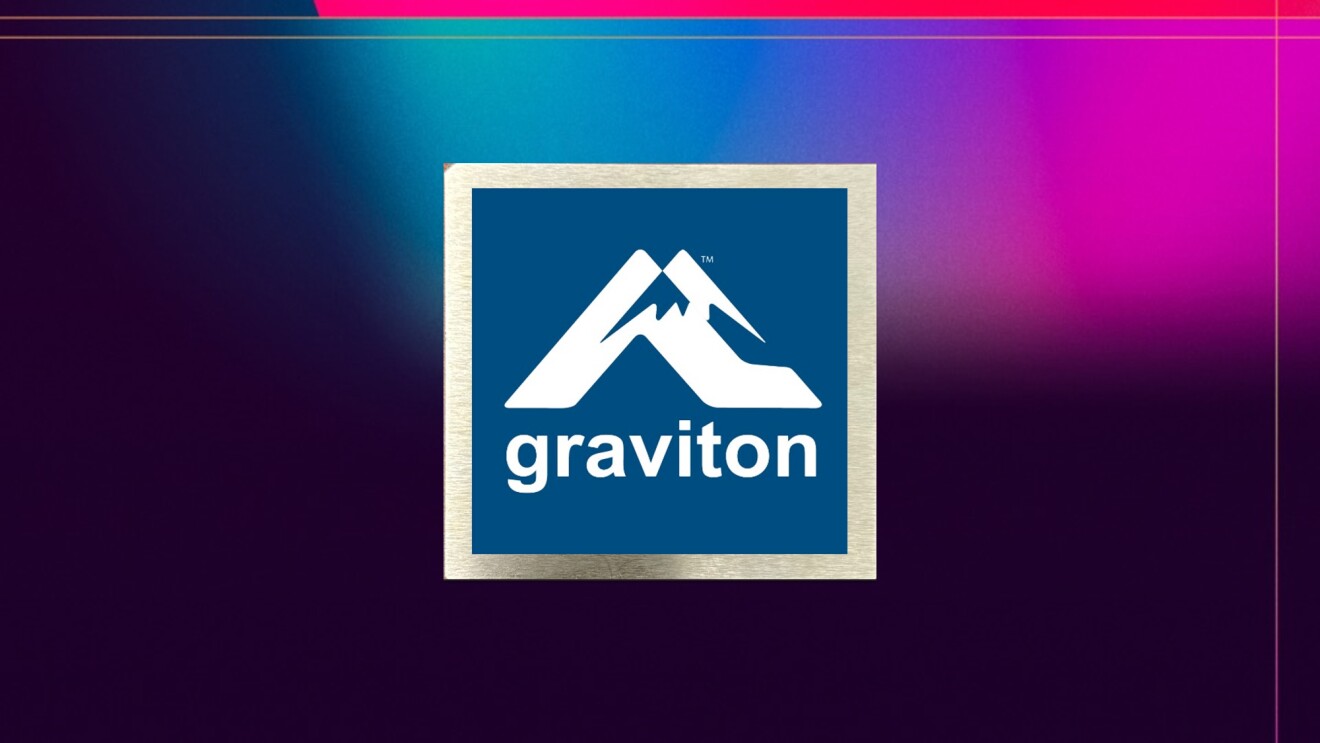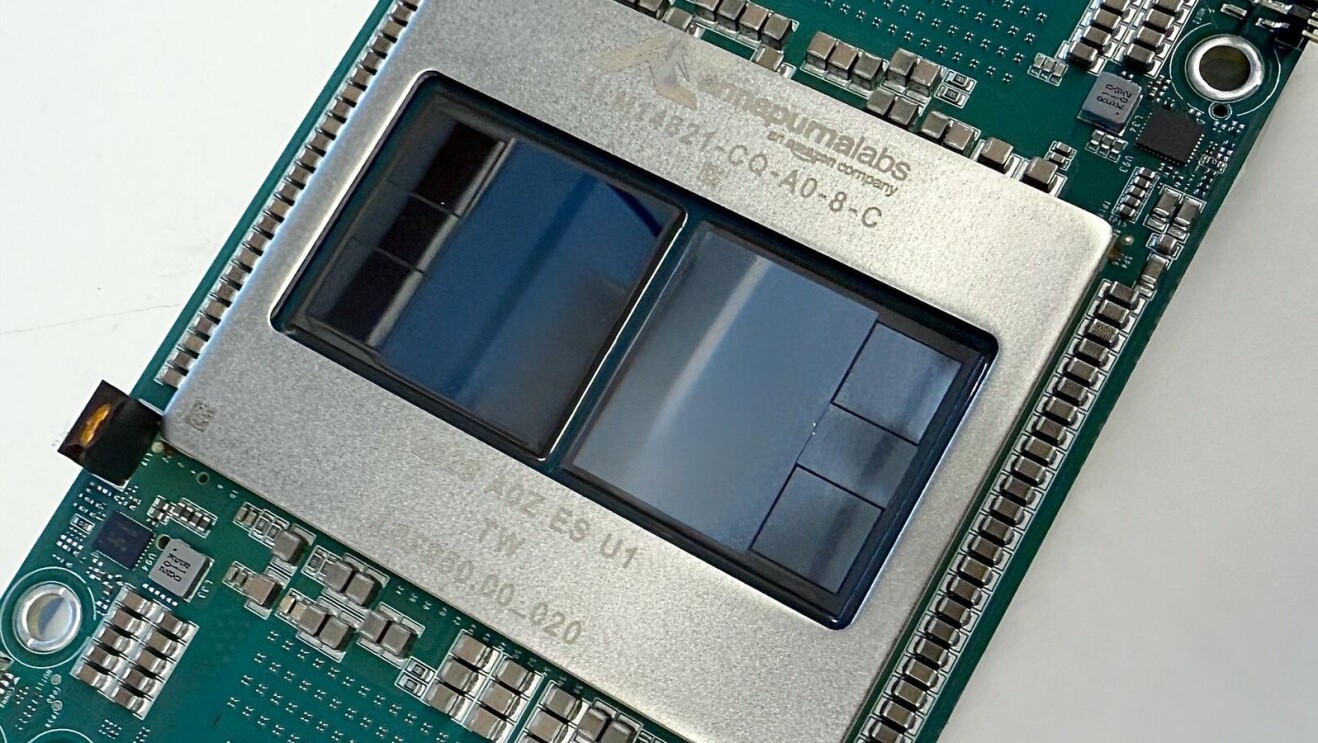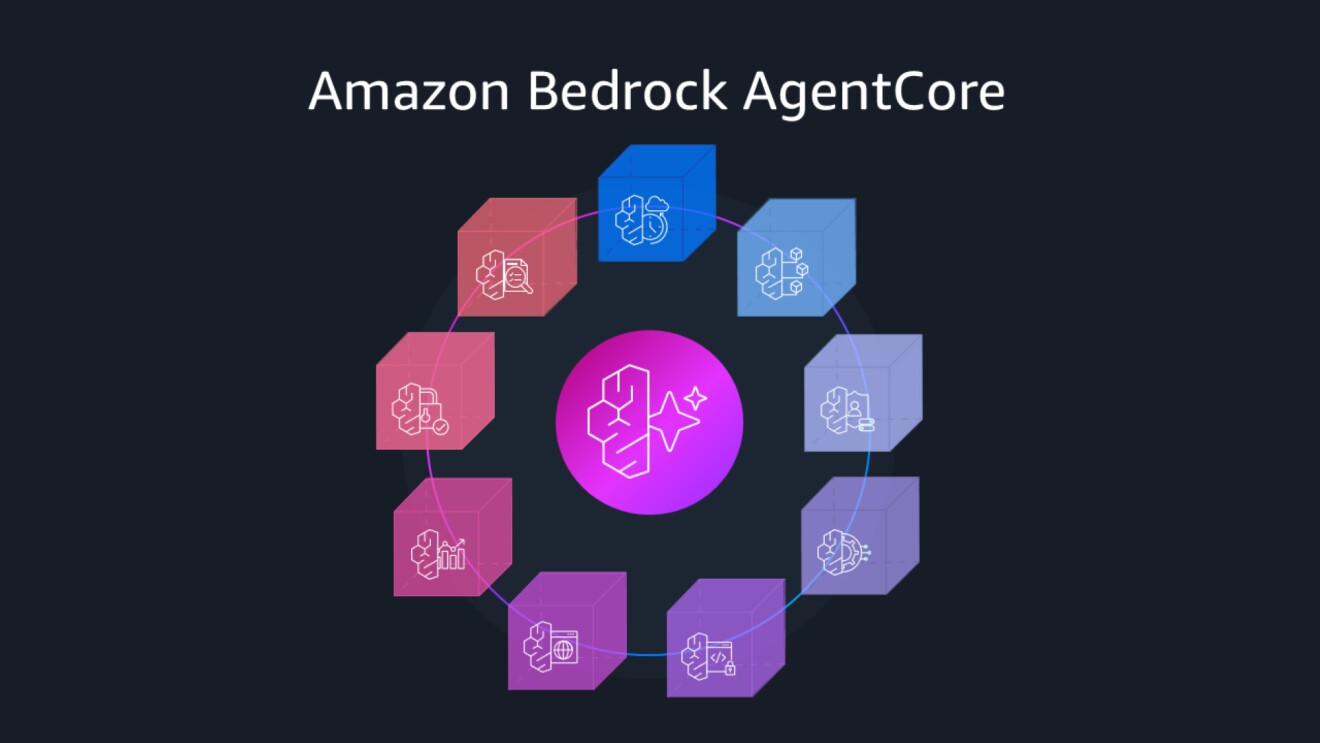When a patient visits their primary care physician complaining of chest pain, the physician has three options: treat the patient and send them home; escalate the patient's case to the emergency room; or refer the patient to a specialist. That’s according to Dr. Reza Sanai, former chief fellow of cardiology at George Washington University Medical School and founder of PicassoMD. He launched the startup in 2019 after finding that about 40% of referrals to his specialist practice were unnecessary or "borderline." It wasn’t that these patients didn’t have legitimate medical concerns; they just didn’t have a condition that required a cardiologist.
Dr. Sanai realized he could have saved everyone the stress of waiting for his answer—sometimes for days or weeks—if he was able to have a quick conversation with the primary care physician (PCP) while they examined the patient complaining of chest pain.
This was the spark for PicassoMD, which connects PCPs with specialists—typically in less than a minute—for feedback on a patient's case. The idea is that the faster PCPs can gain answers to problems, the fewer trips patients make to the emergency room, either because the PCP sent the patient there out of caution or because they mistakenly sent the patient home.
What does this mean in the long run? Better health outcomes and an overall cost saving, for patients and insurers, thanks to fewer unnecessary medical interventions and appointments.
Because PicassoMD is built in the cloud, the other key benefit is that participating PCPs and their patients have access to specialists regardless of where they live. The medical platform hosts orthopedists, dermatologists, cardiologists, and other physicians covering 30 different specialties in a network that spans from Washington, D.C., to as far away as Texas.
For Dr. Sanai, this sort of responsiveness and reach is why most medical professionals get into health care. "When you go into medicine, it’s because you're saying, 'I want to help people,'” he said.
From his experience, the core concept of medical school is collaboration. Students work day and night with each other and with attending physicians to solve a problem.
"The whole schooling system is built on trying to help each other,” he said. “But then you go into the real world—and crickets. Physicians are constantly passing like ships in the night. That doesn't just erode patient satisfaction, it erodes care."
Now, Dr. Sanai wakes each morning, makes a coffee, and consults PicassoMD's daily analytics, powered by AWS's QuickSight report building platform. The numbers speak for themselves: To date, PicassoMD has eliminated about 90% of the unnecessary ER referrals of patients coming through the platform and nearly 50% of all specialist referrals.
When someone walks into their PCP’s office complaining of chest pain, and the PCP uses PicassoMD, the platform connects a cardiologist to the patient's EKG data, the PCP's notes, and directly to the PCP via messaging or phone. Together, they decide whether the case is a heart attack or acid reflux—the difference being an ambulance to the ER or a drive to the pharmacy.
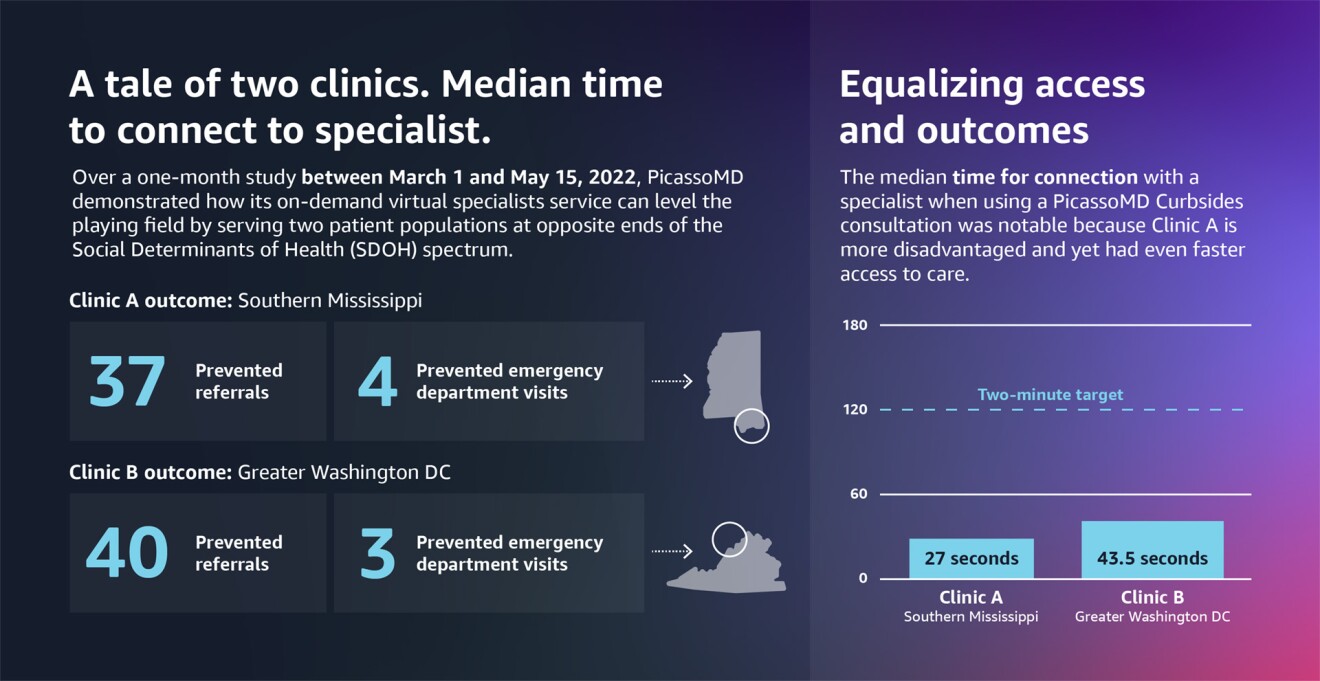
In his own practice, Dr. Sanai still sees patients twice a month. He shies away from using the cliched language of startups to describe PicassoMD, like “disruptive” or “game changer.” Instead, he sees it as an opportunity for the many disparate pieces of American health care—the technologists, the doctors, and everyone in between—to create a shared objective around access to care. Dr. Sanai said it has been incredibly impactful in rural networks such as in Mississippi, where patients can wait up to nine months to see a specialist. Compare that to 22 seconds—the median time it took PicassoMD to connect a PCP to a specialist—and it’s easy to see the vast possibilities that Dr. Sanai’s platform opens up.
PicassoMD works by running complicated specialist matching algorithms atop a HIPAA-compliant communication platform . It also tracks downstream patient and provider data, combining all of it to demonstrate to insurers, which pay PicassoMD for reducing their own costs, that the software-based platform generates a positive return on investment. For everything to work, an easy-to-deploy cloud computing infrastructure is critical. "If Amazon Web Services didn't exist, if we didn't have the tool kit, we couldn't exist," Dr. Sanai said. If PicassoMD's technical staff had to spend time building and managing all the computing, Dr. Sanai said, the team would have less time to create the unique features that make PicassoMD so easy for both PCPs and specialists to use. Plus, Dr. Sanai noted, doctors are only human. They deal with the unimaginable stress of holding patients’ health and happiness in their hands every day. Being caught without an answer leaves many PCPs exhausted and not always ready for the next patient who comes through their door. Having a resource like PicassoMD at their fingertips relieves much of the pressure. "You're taught there are three A's in medicine," said Dr. Sanai. "A physician must be affable, able, and available. That’s really what we’re trying to achieve.”



